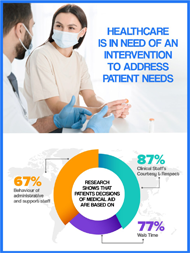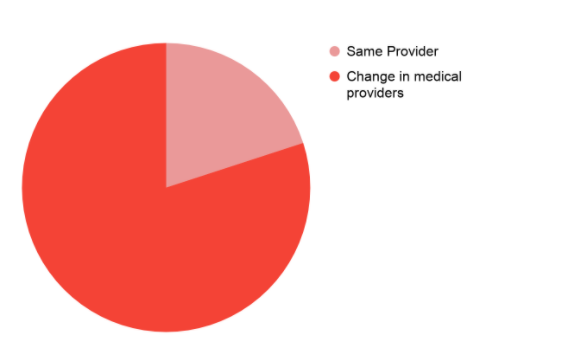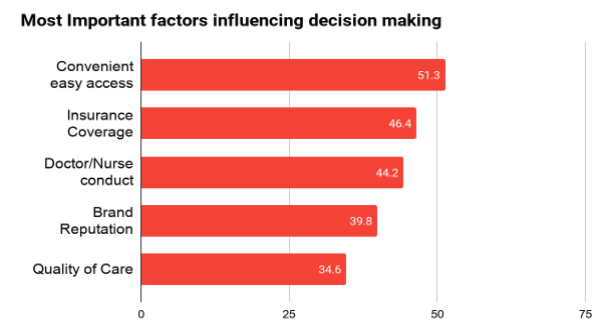Healthcare is in Need of an Intervention to Address Patient Needs
If I were to change something in my country today, I would start with the healthcare system. While I am proud of how it has evolved over years, there are still a few things that

If I were to change something in my country today, I would start with the healthcare system. While I am proud of how it has evolved over years, there are still a few things that need to be looked at under the microscope. Let me share a very personal experience to explain what I am talking about.
A few years back, my grandfather was admitted to a reputed hospital in India. It was a difficult time for my family. On top of being physically and emotionally exhausting, the lack of communication or any clarity from the hospital made it worse. We were struggling to find out what was going on with him and were practically helpless as we didn’t know anyone in the hospital. For many days we were left confused as my grandfather was put on a ventilator, and one day he passed away. It was traumatic not just because of his sad demise, but because we were never really told what happened to him during his treatment. This made me realize that the most important thing for patients and their families is clarity and consistency in communication with healthcare providers.
With the evolution of the healthcare system, the touchpoints between a doctor and patient have increased, and the procedures have become complex. Even with hard-working doctors & state-of-the-art facilities, there might still be gaps where patients need handholding and personalized support. Till that gap remains, patients will continue to be in need of an intervention.
Patient Needs Go Beyond Receiving the Best Treatment
There are several challenges one faces during the course of their treatment. These may vary from case to case, so we cannot generalize. I am listing down the ones that I am aware of and the ones I can think of.
Quality of the clinical staff
Receiving information about the treatment
Communication channel with the doctor
Ease of scheduling an appointment
Integration of medical records
Ease of billing & understanding the bills
Ease of traveling to & from the facility
Procurement of medicines
Access to communication system like phone, Wi-Fi, etc
Post-treatment assistance
Appointment reminders
Availability of online support & immediate response
When we start identifying challenges, we begin to move one step closer to the solution.
According to research done by NRC Health,
80% of patients would switch healthcare providers just for convenience and the biggest (51%) deciding factor for a patient to make their healthcare decision is ‘convenience in access’.


Patients need someone who is willing to customize their treatment and accommodate their specific needs. While in every other sector, there is extensive assistance available with a high response rate; healthcare is still finding its footing in terms of being convenient, responsive, and easily accessible.
87% of patients rate a treatment based on the clinical staff’s courtesy and respect
77% of patients give negative comments based on the wait time
67% of patient comments express dissatisfaction with the behaviour of administrative and support staff
This makes one thing clear that patients are ready to receive convenience. It’s up to the healthcare providers to be able to facilitate it.
The Future of Healthcare is in Anticipating Needs & Fulfilling Them
India has a large pool of qualified and capable doctors and we have access to the most advanced technology and research on specialized treatments. But since the needs of patients are now much more than that, healthcare providers must make it their primary focus to identify these needs from time to time. A solution comes only when certain needs are acknowledged.
A simple solution to address the current needs of patients is a framework that empowers them with knowledge, resources, and assistance at every step. Personalized healthcare assistance is a realistic solution to the growing conflict between healthcare delivery and patient needs.
Patient empowerment is the need of the hour. Healthcare providers must understand that they are partners in a patient’s treatment cycle. And to be able to create an ecosystem where patients are enabled to make informed decisions, every action must come from a place of empathy. The future of healthcare is in establishing a system that caters to a patient’s multitude of concerns and addresses them in a systematic yet customized manner to achieve an unparalleled patient experience. We must remember the end goal at all times, which is to simplify healthcare for patients.





